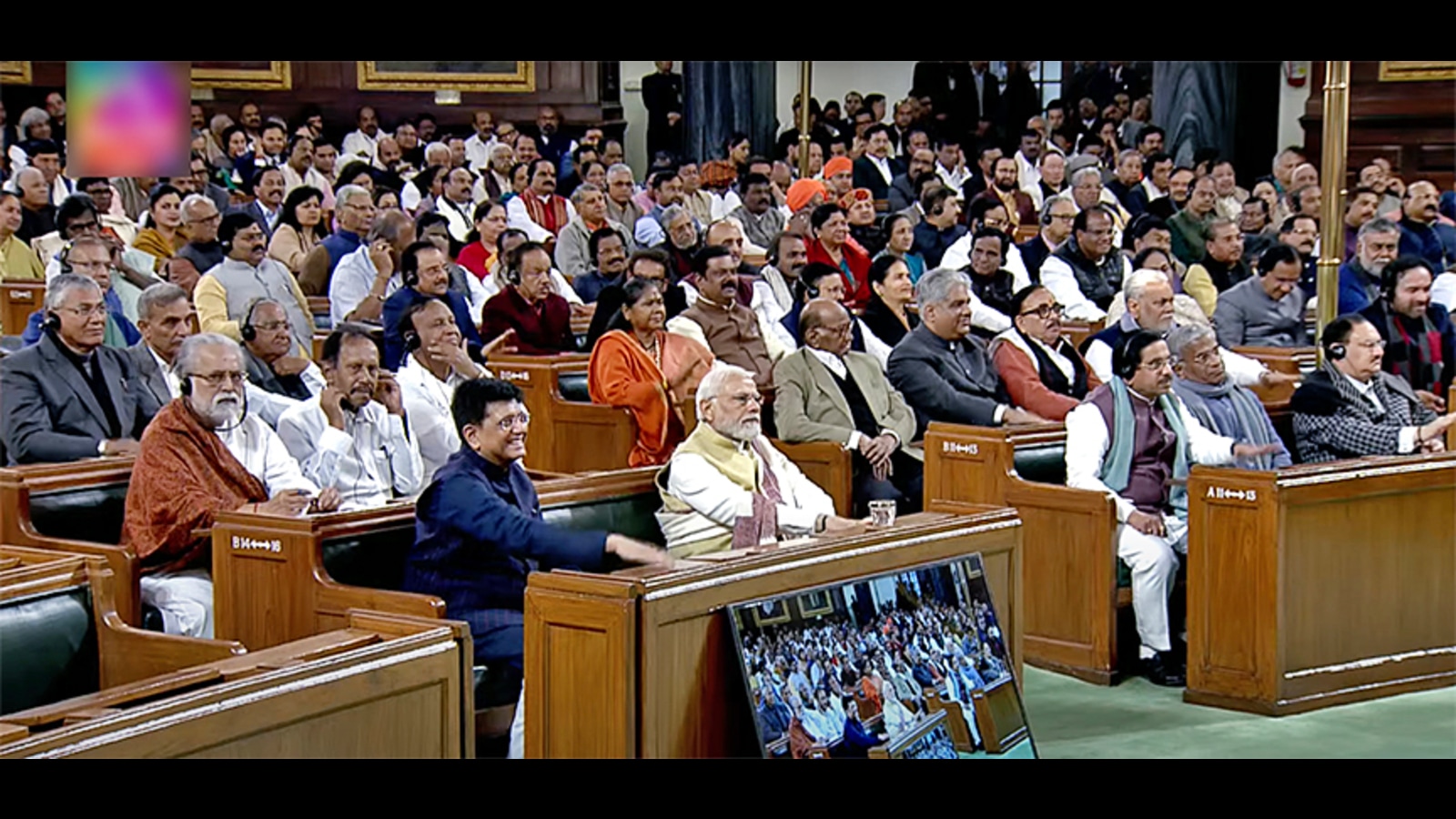The Narendra Modi government plans to introduce 19 new bills, including The Inter-Services Organisation (Command, Control and Discipline) Bill that aims to empower the commander- in-chief or the officer-in-command of inter-services organisations for maintenance of discipline and proper discharge of their duties. A total of 26 bills, including seven pending bills, will form the legislative agenda of the government in this budget session.
The first half of the session, scheduled till February 13, will be primarily spent on discussing the President’s address to the joint sitting of both Houses and the Budget, and, according to functionaries familiar with the matter, could end on February 10.
UNION BUDGET 2023: FULL COVERAGE
The list of bills includes The Development of Enterprises and Services Hubs (DESH) Bill, 2023 that seeks to replace and repeal the Special Economic Zones Act and to frame rules, as well as the Trademarks (Amendment) Bill, 2023 for a convenient and cost-effective way of managing trademarks. Similarly, the government will bring legislation to amend the GI Act to make some of the procedures simpler in order to be more accessible to stakeholders.
The government will also bring three bills related to Jammu and Kashmir: To change the nomenclature of “weak and underprivileged classes (social castes)” in the Jammu and Kashmir Reservation Act to “Other Backward Classes”, inclusion of the Valmiki community as a Scheduled Caste and to revise the list of Scheduled Tribes in Jammu and Kashmir.
ALSO READ: After ‘smart recovery’ from Covid, what do MSMEs expect from Budget 2023
Among the new bills listed for introduction, the Ancient Monuments and Archaeological Sites and Remains (Amendment) Bill, 2023 envisages rationalising the prohibited area and other amendments, the Forest (Conservation) Amendment Bill, 2023 to promote plantation in non-forest areas and conserve forests, and the Coastal Aquaculture Authority (Amendment) Bill, 2023 are seen as important.
Bills to set up a National Dental Commission, the National Nursing and Midwifery Commission, and making the registration of birth and deaths people-friendly are also on the agenda. The government plans to bring legislation to empower the Kalakshetra Foundation to award certificates, diplomas, postgraduate diplomas in arts, crafts and other fields.
The multi-state cooperative authorities amendment bill, being reviewed by a joint committee, has been listed for passage.
Read | Union Budget 2023 to be tabled in Parliament today. Here are 5 big expectations
The government’s floor managers and Lok Sabha floor leaders discussed the agenda for the first half of the budget session in a meeting on Tuesday afternoon. “The government managers indicated that the first half will not have any non-financial legislative agenda. We have roughly eight days in hand in the first half, which would be entirely devoted to the two discussions,” a person who attended the meeting said, asking not to be identified.
After the budget is presented in Parliament on Wednesday, the Business Advisory Committee of both Houses will meet to allot discussions on the demand for grants of individual ministries in the Lok Sabha and Rajya Sabha.
At the meeting of government and opposition leaders on Tuesday, many leaders argued against the session carrying on till February 13. “You can say there was a sense of the House that the session of February 13 could be avoided as parliamentarians will have return to Delhi after a weekend break for just one day of proceedings,” said a senior leader.
Those who attended the meeting pointed out that February 11 and 12 being Saturday and Sunday, “it is better that the first half of the session ends on Friday, February 10. If needed, we are ready to sit for a few extra days in the second half,” according to another person who attended the meeting, and who too did not wish to be identified.
The budget session of Parliament, the longest in a calendar year, is scheduled to have 27 sittings and continue till April 6 with a month-long recess to examine the budget papers, Parliamentary Affairs Minister Pralhad Joshi said earlier.
Parliament will reconvene on March 12 for the second part of the session.
In the last winter session, both Houses were adjourned four working days ahead of the schedule after a number of Opposition leaders demanded adjournment citing Christmas and the festive season. The session, however, saw limited government business and introduction of only seven of the 16 non-financial bills from the government’s agenda.
Traditionally, both Houses approve the motion of thanks to the President’s speech and the Lok Sabha clears the general budget in the first half. The Upper House, with no power to veto any finance bill or budget proposal, only refers it back to the Lok Sabha.
The discussion on demand for grants and the approval for the finance bill takes place in the second half. After the budgetary approvals—part of the government’s constitutional obligation—are over, the government presents its legislative agenda for passage.


